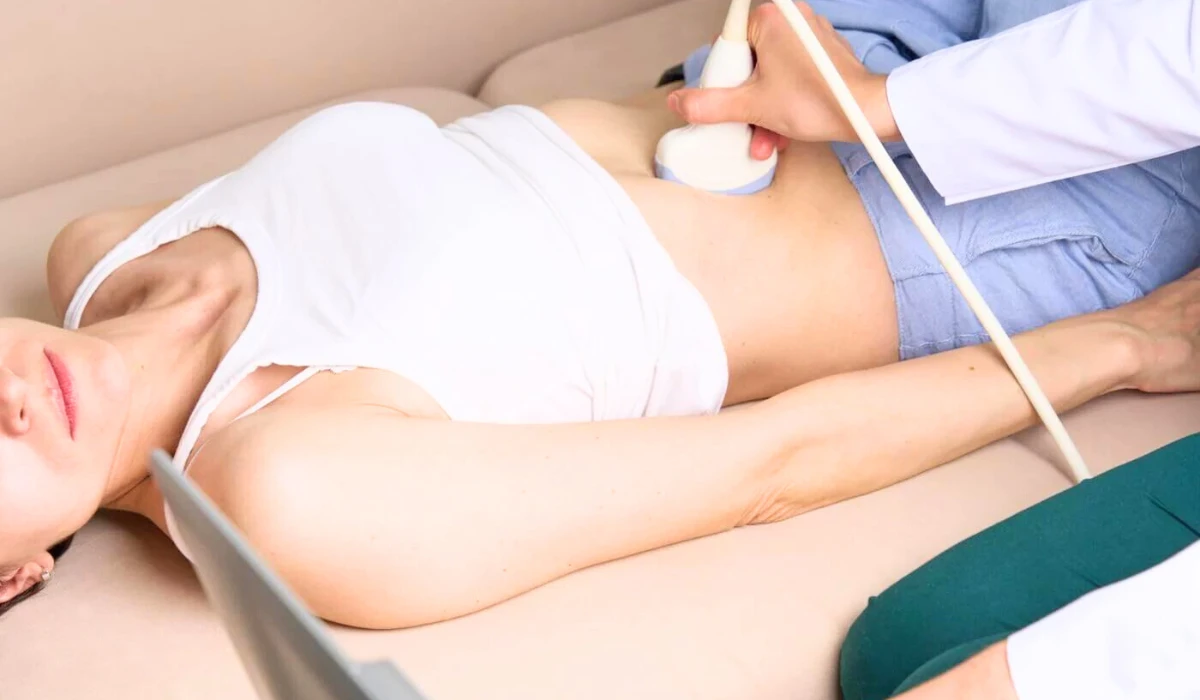On the right side, just below your liver, is a little organ called your gallbladder. Bile is a digestive fluid that the gallbladder stores and secretes. Storing bile is the function of the gallbladder. You may require surgery to remove your gallbladder if you are experiencing discomfort from gallstones, inflammation, or infection. Both open gallbladder surgery and minimally invasive laparoscopic surgery can be used to perform this surgical procedure.
To make the surgery easier, the surgeon will have to pump air into the abdominal cavity during both open and laparoscopic gallbladder surgeries. This can cause you to have extreme bloating for a day or two after the incision is closed. In this article, we will educate you on how to sleep after gallbladder surgery to minimize the discomfort.
What is Gallbladder surgery and how does it affect your sleep?

Gallbladder surgery, as the name implies, involves surgically removing the gallbladder, which is the organ that holds bile, a fluid that aids in digestion. To remove gallstones from the gallbladder, this surgery may be required. These gallstones can block the pancreatic duct and cause pancreatitis. Prolonged, severe stomach pain is one of the most typical signs of pancreatitis. Hospitalization is often necessary for those with pancreatitis.
Most patients stay in the hospital for roughly five days following surgery. On the other hand, recovery after laparoscopic gallbladder surgery may take about one to two weeks, whereas recovery from open gallbladder surgery takes about four to six weeks.
You may be able to resume your regular activities following a one to two-week recovery from a laparoscopic cholecystectomy. This is because laparoscopic cholecystectomy requires less incision than open surgery.
Sleep problems after gallbladder surgery are common. This usually occurs after the analgesic wears off providing you with hours of pain relief. You can have trouble falling asleep as a result of this ache.
Being sleep-deprived at night might also cause fatigue throughout the day. And among other symptoms, you’ll probably encounter impaired attention, mood swings, and migraines when that occurs. Other ways gallbladder surgery affects your sleep may be through pain and the medications or drugs you take after surgery.
It may be more difficult for you to fall asleep due to the psychological and physical stress following surgery. Also, your sleep gets affected if you are a right-side sleeper because you won’t be able to sleep on your right side.
How to sleep after Gallbladder surgery?
Here are some tips on how to get some sleep after a gallbladder surgery;
- Create a good sleep environment
Rest and sleep are important throughout the healing process following any surgical procedure. And to do that, you need a tidy, peaceful place to rest. Having such a setting at home helps quicken the healing process. If you have the opportunity to get your bedroom ready before your surgery, you may want to invest in blackout curtains and bedding that draws away moisture. This way, you may create a serene, dark atmosphere.
Make sure your bedroom is comfortably cool by adjusting the temperature. Overheating can make discomfort worse and make it harder to fall asleep. To reduce distracting noise, get earplugs or a white noise generator. To prevent needless movement at night, keep essentials like water, pain relievers, and a phone charger close at hand.
- Sleep on your back or your back
Sleeping on your back is usually the most pleasant way to sleep since it uniformly distributes your weight and keeps pressure off of the incisions. To keep this sleep position, straighten your legs, and your back, bend your elbows, and raise your toes to keep the posture. This position helps you stay in a neutral alignment.
However, if you find it uncomfortable to sleep on your back, the next best alternative is to lie on your back. Incisions are kept free from pressure on your right side thanks to this.
- Invest in soft support pillows to prop yourself up while you sleep. Follow the doctor’s exercise advice too
Using pillows to elevate your upper body can help reduce pain, particularly if you have acid reflux or gas after surgery. They provide extra cushioning and support in maintaining comfortable positions during the night.
Your doctor. will provide you with specific instructions on when and how to begin exercising following surgery. Any kind of strenuous or demanding exercise is not advised during the first several days following surgery. Taking a quick stroll can help reduce bloating, improve circulation, and generally make you feel better.
- Avoid eating heavy meals before bed
The doctor advises on consuming nutritious food in moderation but spaced out over a predetermined amount of time following gallbladder surgery. After undergoing gallbladder surgery or having the organ removed, there is no particular diet that you must adhere to.
The best practice is to adhere to a modest eating plan. Eating light meals doesn’t make your stomach swell after surgery and is easy to digest. Apart from the other challenges, it will also help avoid dealing with gas or stomach upset.
- Avoid sleeping on your right side
The right side of the abdomen is often where the incision is made during gallbladder surgery. This is a result of the gallbladder’s placement on the abdomen’s right side. Therefore, try not to sleep on your right side or the incision. Additionally, it might lessen discomfort and pressure on the affected area.
Conclusion
It’s common to experience sleep disturbances following gallbladder surgery. Nevertheless, you can always use some of the advice we’ve covered in this post to enhance your sleep.
In most cases, you will be able to return home the same day if you have laparoscopic gallbladder removal surgery. You may need to spend one or two nights in the hospital for observation if you have an open gallbladder removal surgery. After your gallbladder operation, you might experience nausea or diarrhea when you first start eating, but these symptoms should pass soon.
If you still need assistance understanding how to sleep after gallbladder surgery, consult your doctor in addition to following these suggestions.

